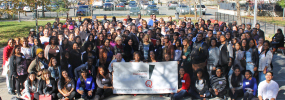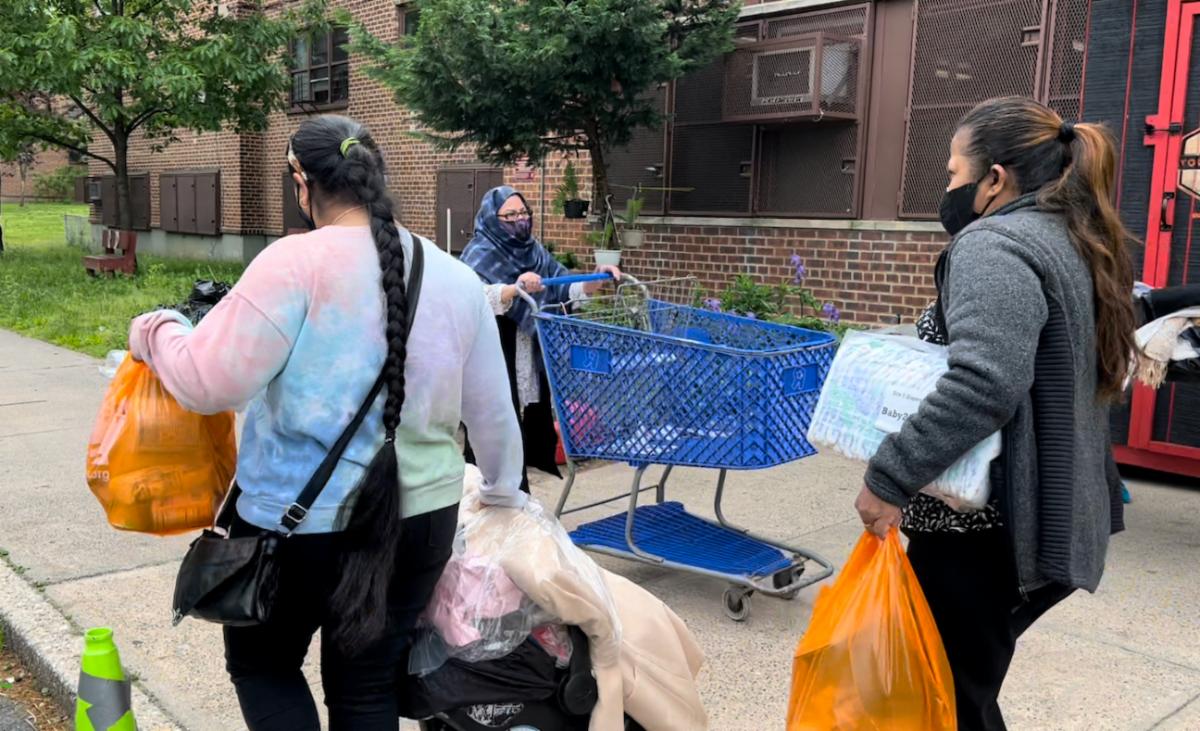
Support Queens Community House
Queens Community House provides individuals and families with the tools to enrich their lives and build healthy, inclusive communities.

Crain's New York Business: Insurers and CBOs team up to get baby formula to New Yorkers in need | June 2022: Health plans and community-based organizations are joining forces to help New Yorkers cope with the continuing infant formula shortage.
Not-for-profit insurers EmblemHealth and MetroPlusHealth are trying to connect members with food pantries, milk banks and other social services organizations that are collecting formula donations to distribute to families in need.
Dr. Andrea Zaldivar, director of complex managed care and social determinants of health for MetroPlus, said the health plan texted its members links to community-based organizations with formula supply. The messages went out to thousands of English- and Spanish-speaking members with infants age 12 months and younger.
Zaldivar said Spanish-speaking members in particular were eager to get on the phone with a plan representative to ask questions not only about finding formula but also other resources they needed, such as diapers and referrals to parenting classes.
Emblem also provided its members with a list of community-based organizations such as Sisters With Purpose in Brooklyn and Blanche Memorial Church in Queens.
Among the nonprofits working on the front lines of the crisis is Queens Community House, which maintains a list of more than a dozen people who have visited its food pantry in need of formula. Each time a donation comes in, the nonprofit reaches out in order of greatest need; maybe that person’s baby is sick, or requires a specific formula. The cans practically fly off the shelves, said Zani Simmons, the nonprofit’s director of community engagement.
Linda Harelick, executive director the New York Milk Bank, a nonprofit in Westchester County that collects and distributes breast milk from donors, said health plans could help combat the shortage by covering donated breast milk for all infants.
The nonprofit primarily provides milk to hospitals, which feed it to premature and sick infants in their care. In such cases, the state’s Medicaid program covers donated milk at a reimbursement rate of $5 per ounce, Harelick said.
“For premature and sick babies, it’s really a medical necessity,” Harelick said. “It’s like a medicine.”
Families whose babies are not hospitalized can place orders for the milk bank’s excess supply. The bank also negotiates single-case agreements with private health plans to cover the provision of its donated supply to other babies in need. But even then, Harelick said, the organization struggles to get reimbursement from insurance.
Gov. Kathy Hochul’s office did not respond to requests for comment on whether the administration will take regulatory action to get local health plans to cover donated milk.
While the U.S. Food and Drug Administration is taking steps to address the monthslong crisis by importing infant formula products from abroad, local innovators including Laura Katz are working on a longer-term fix.
Katz, founder and CEO of Helaina, is using food science technology to produce and commercialize a synthetic breast milk that offers the same immune-building benefits as the real thing.
The startup, which has a lab at Deerfield Management’s Cure life sciences campus in Gramercy, has been developing its product for more than two and a half years. The next step, a clinical study, is in the planning process and expected to get off the ground next year.
Katz said the FDA’s regulatory process for infant formula details specific timelines and involves many checks and balances—which is both a critical safety measure and a significant barrier to new products entering the market. Every batch of formula needs to be tested for contaminants and evaluated for adequate nutrient levels.
“It’s a tricky category to move quickly in,” she said.